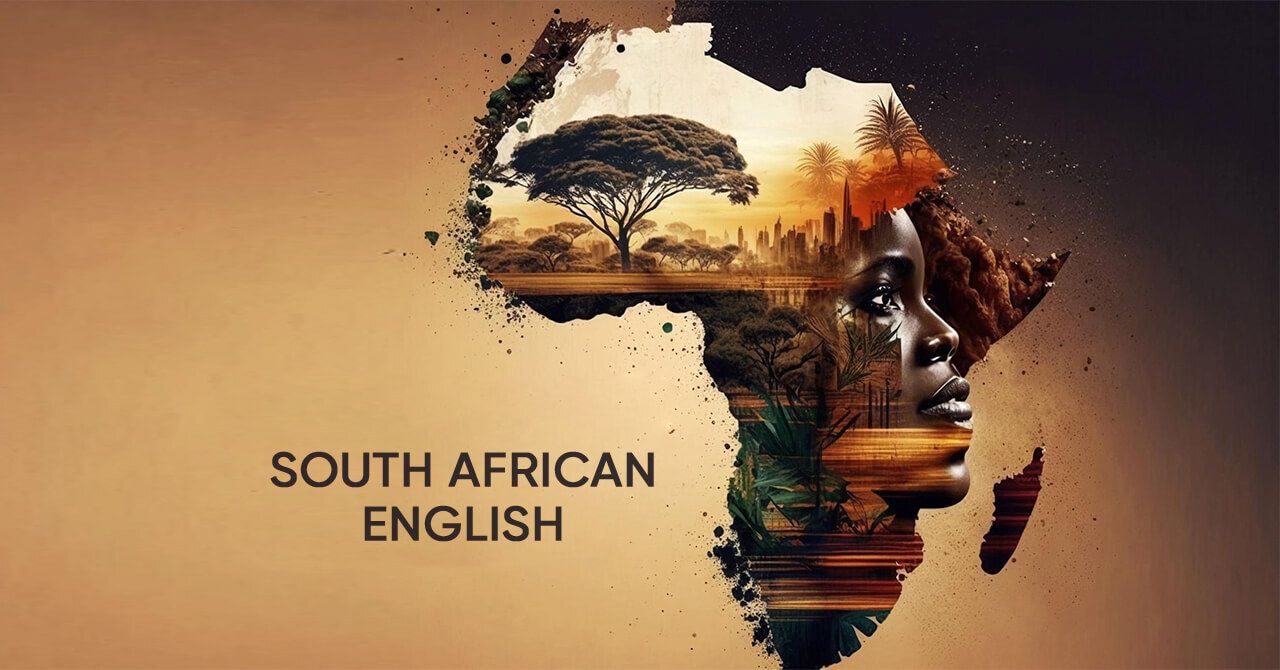
South African Slang: The Rich Flavor of South African English
South African English is a dynamic and ever-evolving variety of English spoken across the rainbow nation.

Get a FREE guide!
Want to sound like a native English speaker?
Get our free PDF with top tips that work.

Check your email!
I always can’t help but smile in amusement, feeling good whenever I hear a South African man or woman speaking English. Reminds me of the days I used to drive Uber.
Picking up a South African client always made my day! I don’t know if it’s only me who notices it, but their English sounds uniquely different. It’s somehow modified with filler words and sayings from indigenous languages, which makes it feel more like South African slang than English.
South African English is a dynamic and ever-evolving variety of English spoken across the rainbow nation. Influenced by various languages and cultures, it’s no surprise that South African English has its own distinct and weird flavor.
You would almost believe that English is the most dominant language in South Africa since we hear it a lot in the media, technology, government, and commercial public life. But the truth is that the isiZulu of the Zulu warriors and the isiXhosa (the native tongue of Nelson Mandela) are the most widely spoken languages in South Africa.
South African words and meanings
You’ve probably come across some of these South African sayings that make their English unique, but let’s test the brain and see how much we know or how much we can learn.
These African slang words and sayings are what define the English that’s being spoken in the region, so pay close attention and learn how to speak South African English (SAE).
Lekker (great)
Derived from Afrikaans, this versatile word is used to describe anything that is good, great, or enjoyable. From tasty food to a fun experience, “lekker” is an ideal South African expression that encapsulates positivity and satisfaction.
Braai
This refers to a barbecue or grilling session, usually involving meat. It’s a popular social activity in South Africa, where friends and family gather to cook and eat together. Saying “Let’s have a braai” is like saying “Let’s have a barbecue” in English.
Yebo (yeah)
Meaning “yes” in Zulu, “yebo” is a commonly used affirmative interjection in South African English. Its sound adds a touch of authenticity to conversations and reflects the influence of indigenous languages. It’s typically the African version of “yeah.”
Voetsek (get lost)
The South African word “voetsek” is a strong expression used to tell someone to go away or to leave you alone. It’s often said in frustration or anger. Similar to saying “get lost” or “go away” in English, it’s a straightforward way to express annoyance or irritation.
South African phrases
Shap shap (got it)
This phrase is used to express agreement or confirmation, similar to saying “okay” or “got it.” For example, if your language tutor asks if you understand a task, you may reply with “shap shap / sharp sharp” to indicate that you do.
Ag, man! (Oh, please)
The term is a commonly used expression in South African English, reflecting a sense of familiarity or resignation.
“Ag” is an interjection expressing a range of emotions such as annoyance, resignation, or sympathy, while "man" is often added for emphasis or to address someone informally.
Together, “Ag, man” can convey sentiments like “Oh, come on,” “oh, no,” or “oh, please.” This phrase is deeply ingrained in South African culture and is used in various contexts to express feelings or reactions to different situations.
Just now
This saying doesn’t mean immediately, as one might expect. Instead, it implies sometime in the near future without a specific timeframe. So if you hear someone say, “I’ll do it just now,” it means they will do it at some point soon, but not necessarily right away.
Howzit (How is it?)
This one here is a casual greeting, short for “how is it?” It’s similar to asking “what’s up?” or “how are you?” in English. It’s commonly used between friends or acquaintances as a way to check in and see how someone is doing.
Ja nee
It’s a bit tricky because it can have different meanings depending on the context. It’s often used to express agreement, acknowledgment, or understanding.
For example, if a South African is telling you a story, you may respond with “ja nee” to show that you’re listening and following along.
South African slang phrases
Awe (hello, sure, cool)
Derived from Zulu, “awe” is a versatile slang word that can mean various things depending on context. You can use it as a greeting, similar to saying “hi” or “hello,” or as an expression of agreement, like saying “sure” or “alright.”
Equally, you can also use it to show appreciation or approval, like saying “Cool” or “Awesome.”
Dof (dull or stupid)
Dof is a South African slang term often used to describe someone or something that lacks intelligence or excitement. It means dull, dim-witted, or otherwise stupid.
For example, if someone makes a silly mistake, you might jokingly call them “dof.”🤭
Eish (oh no)
This is one of those unique South African expressions that adds color and emotion to everyday conversations. It’s an expression of surprise, shock, or frustration, similar to saying “wow” or “oh no” in English.
The word “Eish” is often used when something unexpected or disappointing happens, like spilling a drink or hearing bad news.
Aikona (absolutely not)
This word is used to express refusal, disagreement, or disapproval.
It’s similar to saying “no way” or “absolutely not.” For instance, if someone asks you to do something unreasonable, just tell them “Aikona” to refuse.
Why would anyone need to know all this?
Slang is like a unique identity of a specific region or state.
It adds a special taste to the language and plays a crucial role when learning a new language. And in this case, it is necessary and particularly important when talking about the languages of South Africa, the rainbow nation.
I also find SAE to be very interesting and unique. Perhaps it’s because of the direct influence of varying languages and cultures.
Whether it’s affected by Germanic or Arabic languages, you would also agree that South African slang is nothing less than interesting and unique, although it’s also confusing.
A glimpse at the history of the rainbow nation
South Africa is a land of breathtaking landscapes and diverse communities, which bears witness to history as complex and captivating as the continent itself.
From the dawn of humanity, the southern tip of Africa has been a meeting place of cultures and civilizations. Indigenous peoples, such as the San and Khoekhoe, forged their existence in harmony with the land, leaving behind a legacy of ancient languages. But it was with the arrival of European explorers and settlers that the story of South Africa took on a new chapter, one marked by conquest, colonization, and conflict. The Dutch East India Company established a foothold at the Cape of Good Hope in the 17th century, laying the foundations for what would become the Cape Colony. Dutch settlers, known as Boers, brought with them their language (Afrikaans), which is a descendant of Dutch enriched by the influences of indigenous Khoisan languages and later African languages.
The arrival of the British
The British Empire, ever-expanding its reach, seized control of the Cape Colony in the early 19th century, setting the stage for a clash of cultures and languages.
English, which was the language of the colonizers, became entrenched in the administrative and educational systems, leaving a permanent mark on the linguistic landscape of the region.
Moreover, the struggle against apartheid, a system of institutionalized racial segregation and discrimination, further shaped the linguistic mosaic of South Africa.
What was called the post-apartheid era ushered in a new era of linguistic diversity and inclusion, with South Africa’s constitution recognizing eleven official languages, including English, isiZulu, isiXhosa, Afrikaans, et cetera.
Today, the languages of South Africa stand as a testament to the resilience of its people, a reminder of the indomitable spirit that has endured centuries of hardship and oppression. Each language carries with it a unique story, a vibrant tapestry woven from the threads of history, culture, and identity.
Final thoughts
Beyond their linguistic significance, South African slang phrases carry cultural connotations that offer valuable insights into the country’s heritage and identity.
From the influence of indigenous languages to the legacy of apartheid and colonialism, each expression reflects a unique facet of South African history and society.
Whether you’re a language enthusiast, a traveler, or simply curious about different forms of English, exploring South African slang and phrases is an enriching experience that offers valuable insights into the country’s identity and culture.
















